Opinion: What a Super Bowl win would mean for fans of the Kansas City Chiefs
- Oops!Something went wrong.Please try again later.
Editor’s note: Mark Dent is the co-author of “Kingdom Quarterback,” a book that tells the story of the historic struggles of Kansas City alongside the rise of Patrick Mahomes and the Kansas City Chiefs. He is also a senior features writer for The Hustle. The views expressed in this commentary are his own. Read more opinion at CNN.
In the 1970s, officials in my former hometown unveiled a slogan intended to appeal to jaded locals as well as skeptical East Coasters: “Kansas City, one of the few livable cities left.” Far from putting it on a pedestal, the slogan seemed a tacit admission that it had settled on a destiny as a pleasant but boring flyover city.
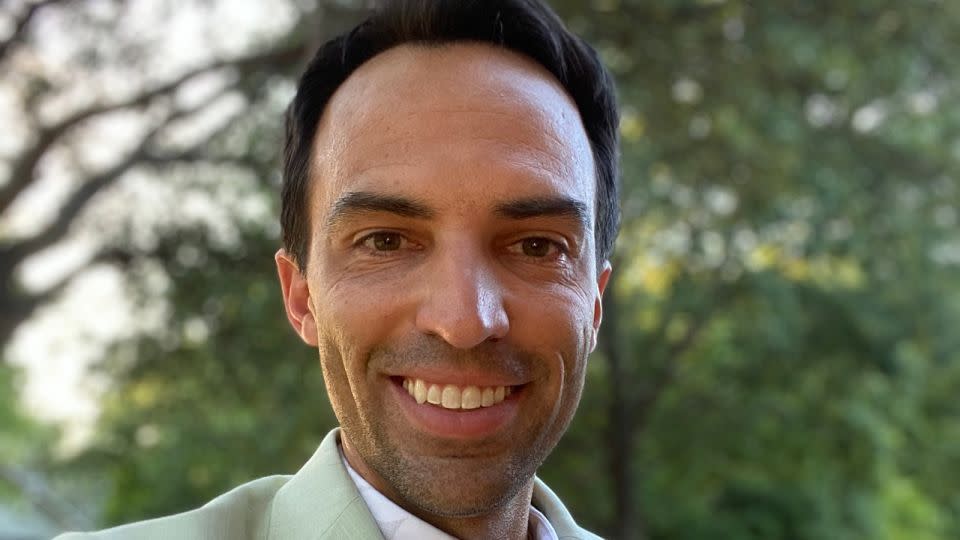
In the decades that followed, Kansas City appeared to have resigned itself to being something less than that, with its hollowed-out downtown, extreme segregation and what always seemed like a nagging sense of inferiority.
“You never see Kansas City in a movie,” Quinton Lucas, the city’s mayor, once told me.
The funk radiated throughout Kansas City proper, in Missouri, and into its suburbs, which sprawl across Missouri and Kansas. Adding to the malaise was the fact that the region was defined by football heartbreak when I was growing up in the Kansas City suburbs around that time.
Growing up outside Kansas City, football was inescapable. Kansas Citians ended conversations by saying “Go Chiefs!” instead of goodbye. Every Friday, we went to schools and offices dressed up in Chiefs gear for “Red Friday.” Die-hard fans tailgated for hours in the Arrowhead Stadium parking lot.
But after winning the Super Bowl in 1970, the Chiefs won just four playoff games over the next 48 years, cycling through a series of uninspiring quarterbacks, some plucked from more glamorous cities such as San Francisco.
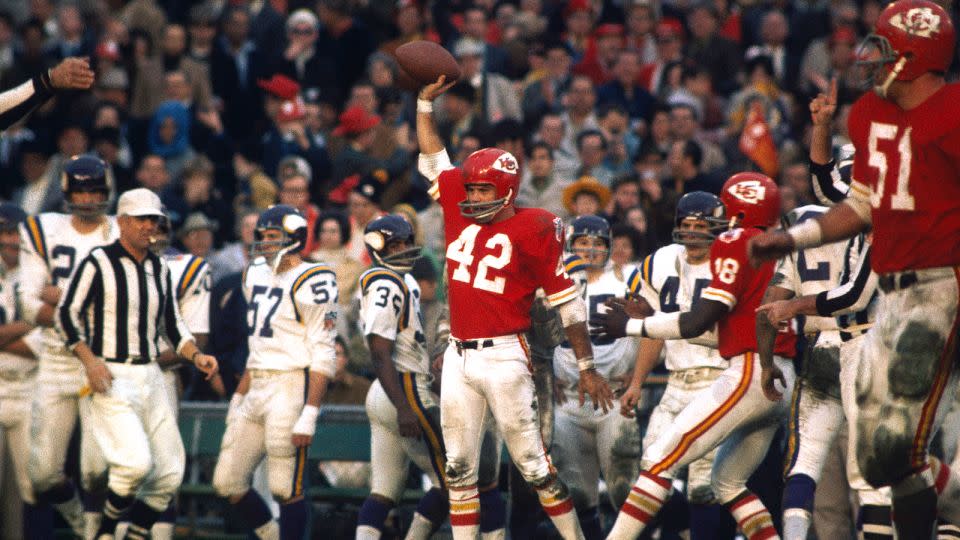
The city feels completely different now as the home for what could be a budding football dynasty. And of course, a high-profile romance between pop megastar Taylor Swift and future NFL hall-of-famer Travis Kelce — the type of splashy courtship that you might expect in New York City or Paris or Los Angeles — hasn’t hurt either.
The “Taylor Swift Effect,” coupled with the Chiefs’ latest successes — four Super Bowl appearances in five years — has made Kansas City at very least a national curiosity, perhaps even an object of national envy. It may even be in the process of becoming something much greater: a marquee attraction. A destination. A place where residents feel that they have finally arrived. It has definitely given Kansas City more publicity than any mediocre, booster-approved slogan could ever bring.
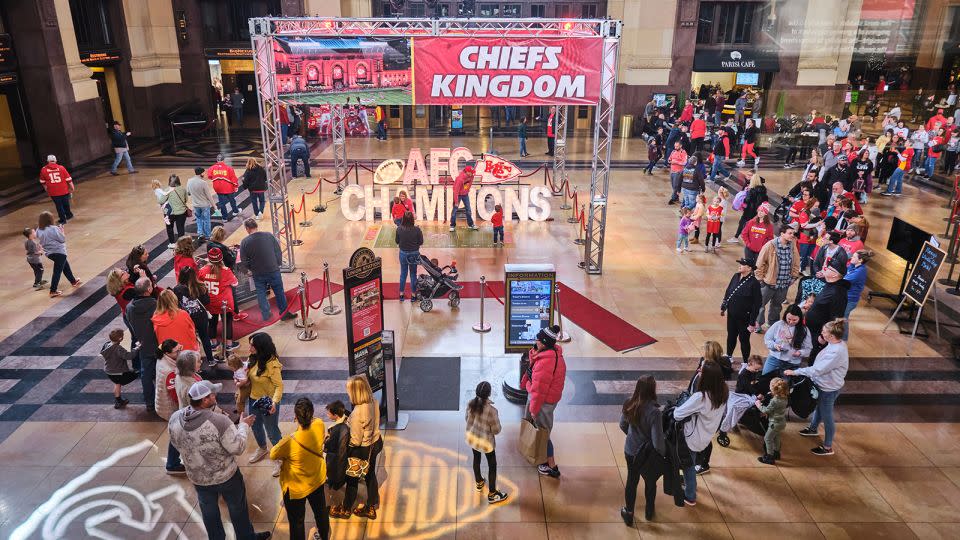
Throughout the Missouri metropolis, where the downtown is lit up red for the Chiefs, the feel-good vibes are undeniable. As the country reels from division and pessimism, Kansas City may just be the most optimistic, ambitious place in the country, truly the beating “Heart of America,” to cite another of its nicknames.
That’s truer than ever since the Taylor Swift era began, publicly at least, this past September. As the pop star watched a Chiefs game against the Bears in an Arrowhead Stadium suite and rode through city streets in the passenger seat of Kelce’s convertible, the phones of every Kansas City resident and every native like me who moved away but stayed connected, started pinging.
Still, I didn’t expect that Swift would basically have a Kansas City pied-a-terre and carry herself like a local. At one of her early meetings with the Kelce family, there were news reports of a meal ordered from a popular establishment called First Watch — a decidedly unfancy chain restaurant. She and a group of friends also gathered recently for a “ladies night” outing at Rye, a restaurant in Leawood, Kansas, enjoying chicken and dumplings.
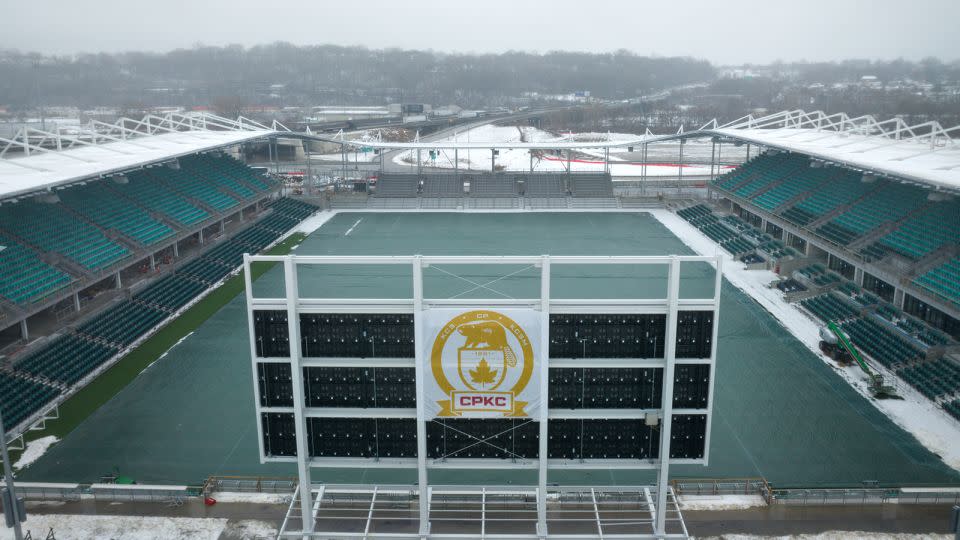
Swift has even done the most Kansas City thing ever, publicly sporting Kansas City attire. There are an inordinate number of companies that sell Kansas City-branded goods, but the apparel is generally worn by locals. Thanks to Swift, that may soon change too. At a December game against the Buffalo Bills, she wore a vintage Chiefs sweatshirt purchased from a local boutique. She was spotted wearing a No. 87 ring (Kelce’s number) after the Chiefs’ AFC Championship victory in January. The ring, made by a company specializing in Kansas City-related jewelry, sells for $14.
Eating local fare and donning team merch, Swift has made once humble Kansas City seem more than just livable; she’s made it seem glamorous. For a lot of us though, the city has been low-key cool for a long time — a sentiment I frequently heard while reporting on a book I wrote a few months back on the history of the city and the Kansas City Chiefs.
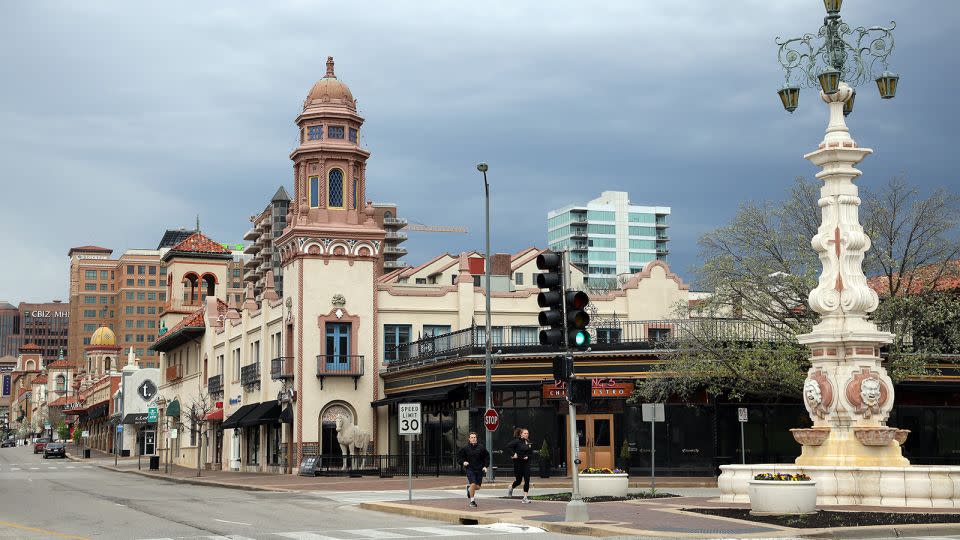
In the 2010s, Kansas City, Missouri’s population experienced the beginnings of a revival, after decades of neglect and stagnation. Earlier in its history, Kansas City — home to a local developer who popularized racially restrictive covenants across the US — was badly impacted by redlining and White flight.
But beginning about a decade and a half ago, a new arena and entertainment district brought life to downtown and artists populated lofts in an adjacent neighborhood called the Crossroads. Parts of Troost Avenue, long a de facto dividing line that separated the city by race and income, saw new housing and an infusion of local entrepreneurs. Enhanced civic pride followed, as did an increasing proclivity by locals to wear Kansas City T-shirts.
Coincidentally, so did major sporting achievements. The Royals won the World Series in 2015. In 2017, the Chiefs drafted Patrick Mahomes, a transcendent quarterback. He’s won two MVPs, led the team to two Super Bowl victories and compiled an unmatched 15-11 record when trailing by 10 points or more.
“I almost think of it as crazy how much sports can affect how people can feel as a city. But if Mahomes can do this, you think Kansas City can, too,” Kay Barnes, a former mayor, told me not long after Mahomes’ first Super Bowl win.
Every few months, the Kansas City area seems to accomplish something that previously felt impossible. In 2022, it broke ground on the world’s first stadium built for women’s professional soccer, scheduled to open this year for the Kansas City Current (Patrick and Brittany Mahomes are among the co-owners). FIFA announced that our modest city, with a metro population of some 2.2 million, would host men’s World Cup matches in 2026, beating out the likes of Washington, DC and Nashville, Tennessee.
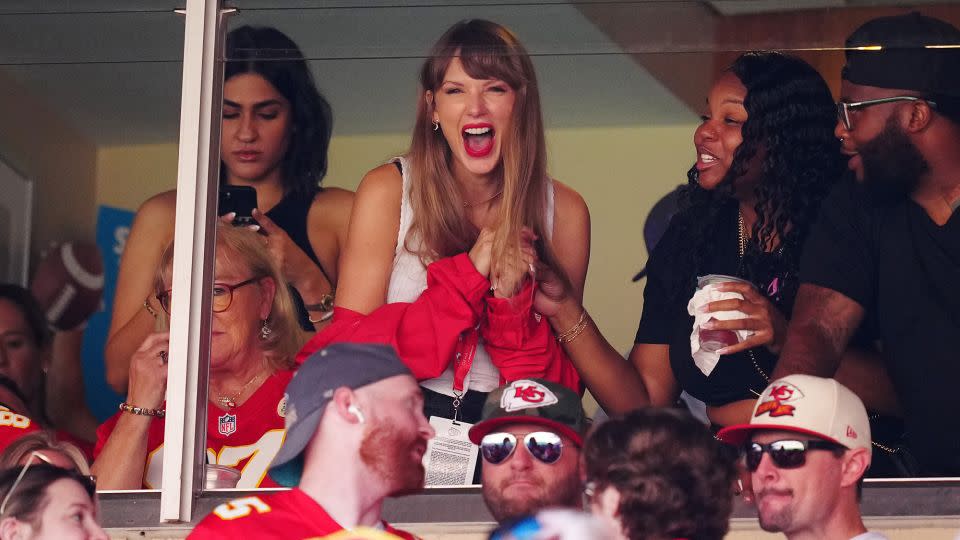
Not that it doesn’t continue to face major challenges. Last year, Kansas City, Missouri, set a record for homicides, surpassing a mark that had been set just three years earlier. Andrew Lester, an elderly White man, was charged with first-degree assault last year after allegedly shooting Ralph Yarl, a Black teen who knocked on his door — an incident that garnered the worst kind of international headlines.
Meanwhile, the city’s recent population growth has coincided with gentrification which has led to the displacement of longtime residents in the predominantly Latino Westside neighborhood and parts of the mostly Black East Side, where many neighborhoods are mired in poverty.
Fortunately, powerful activism has also been part of the city’s increased civic pride. KC Tenants, a citywide tenants union with thousands of members, helped the city become one of the first to guarantee renters a right to counsel. In 2022, the group helped convince voters to pass a bond measure providing $50 million for the city’s Housing Trust Fund, perhaps the largest financial boost to affordable housing in the city’s history. Mayor Lucas pushed to make Kansas City the first major city in the US to enact zero-fare transit (although future funding for the program is at risk). The city is also studying how to reconnect neighborhoods severed by highways.
Nobody would say Kansas City has everything figured out. But almost everyone I speak to about the city believes it is at least reckoning with its problems and asking serious questions about what kind of city it wants to be.
And yes, for now — or for at least as long as the relationship lasts — Taylor Swift is part of the equation. Last Sunday, the Kansas City market ranked No. 1 in TV ratings for the Grammys: Its viewership was up 86% over last year, suggesting more than a modicum of support for Swift on her big night.
In the meantime, residents will look forward with nervous excitement to Sunday’s Big Game. But they will keep loving their team, whatever the outcome. Because win or lose, devotion to their Chiefs is something people in Kansas City have always agreed on, and probably always will.
For more CNN news and newsletters create an account at CNN.com

